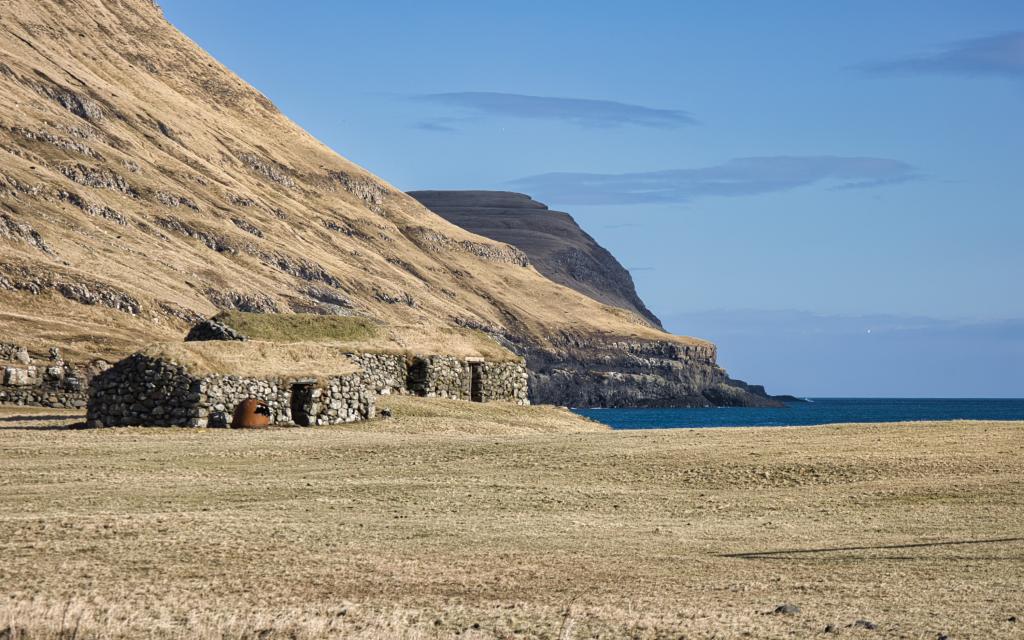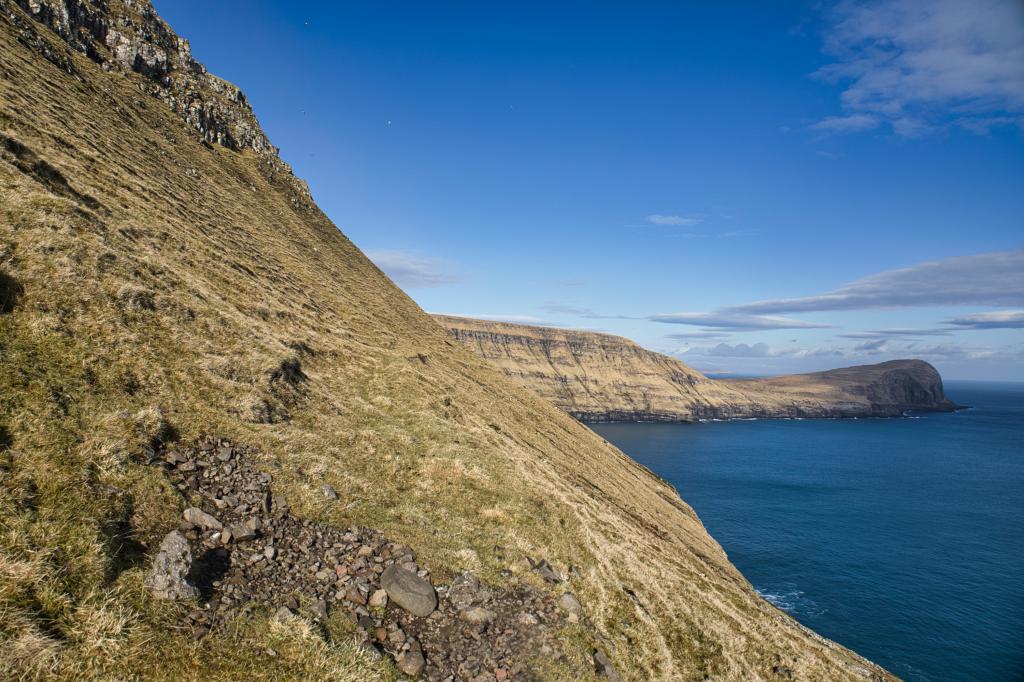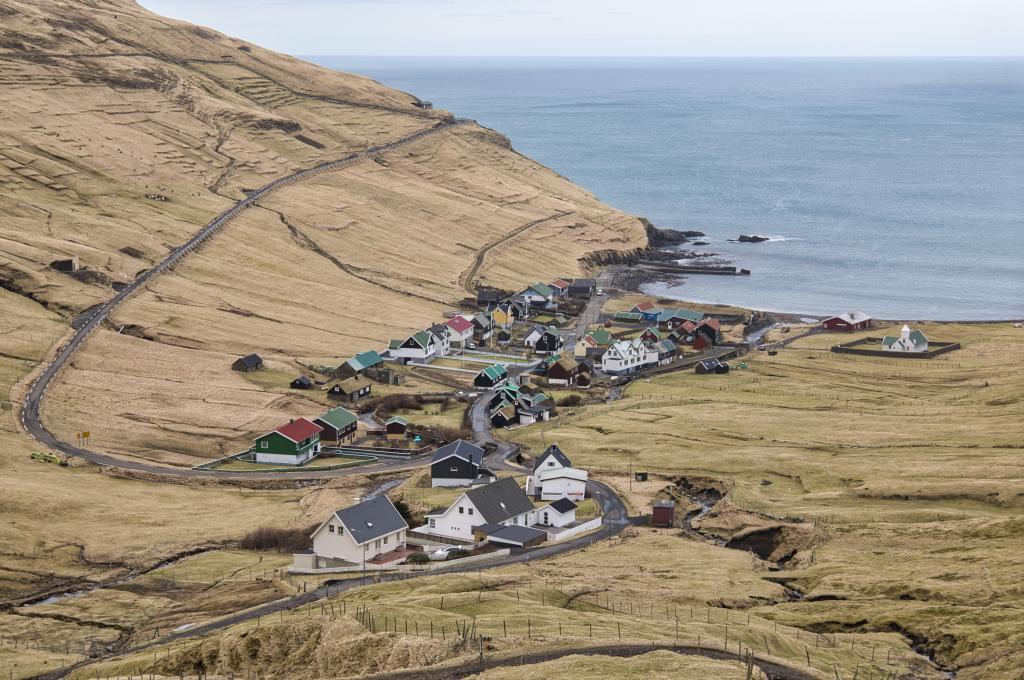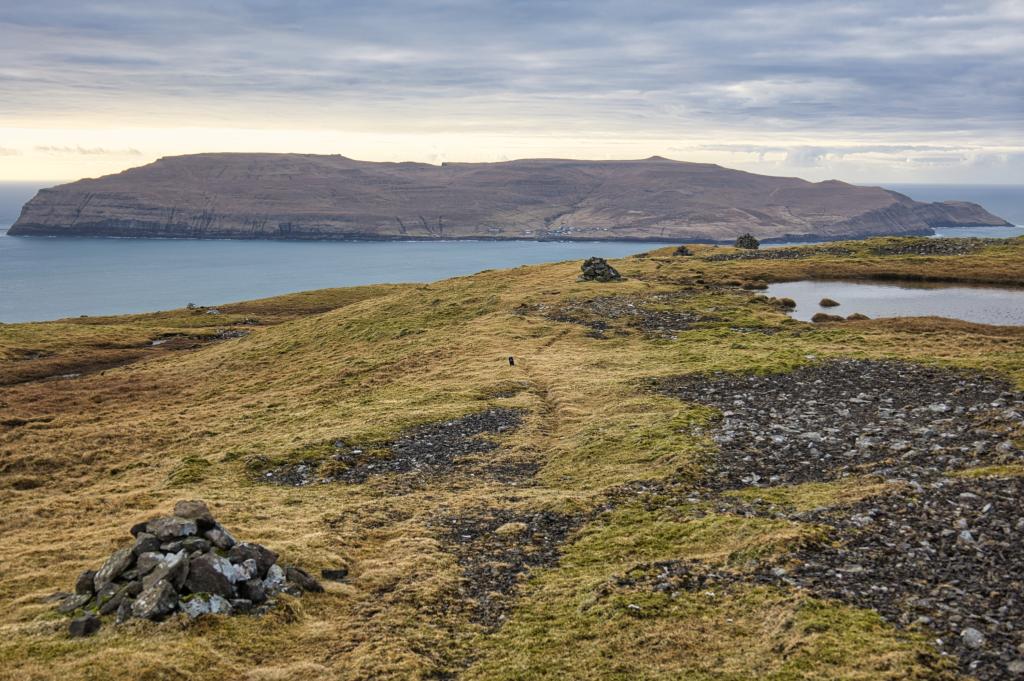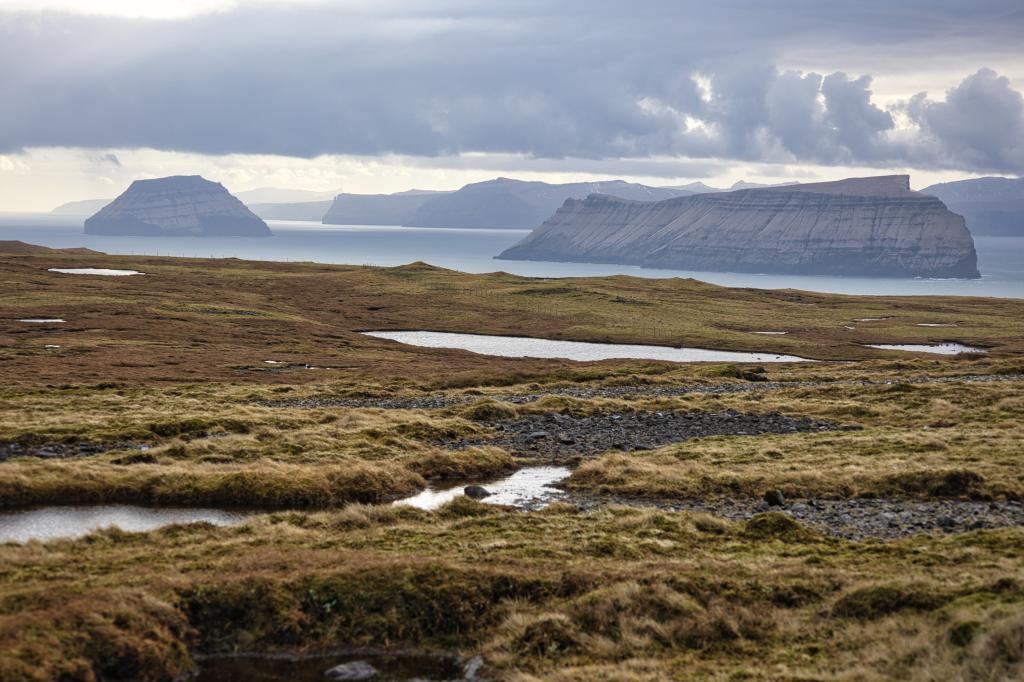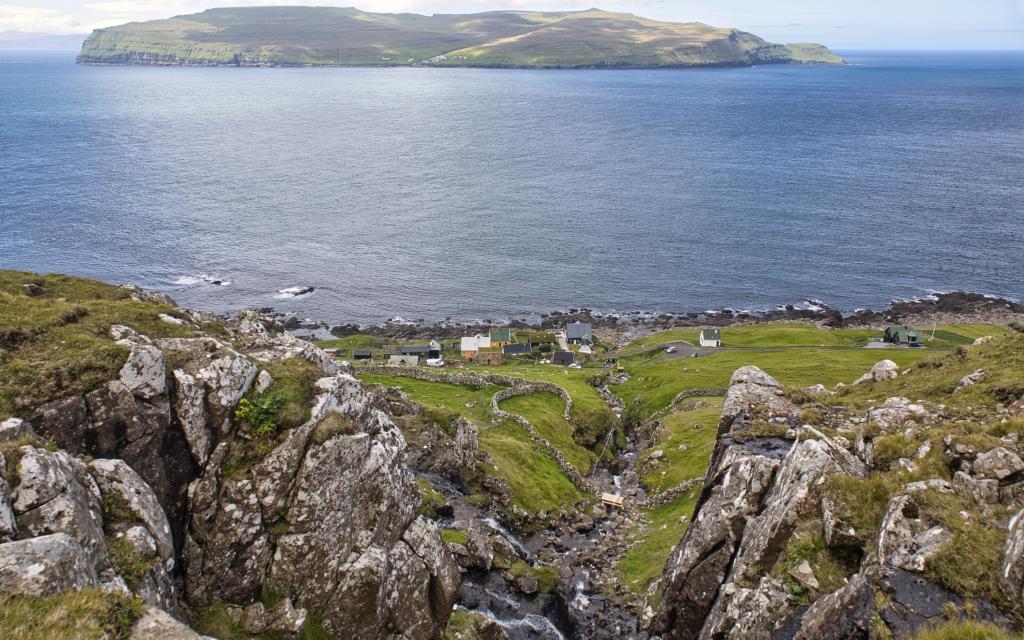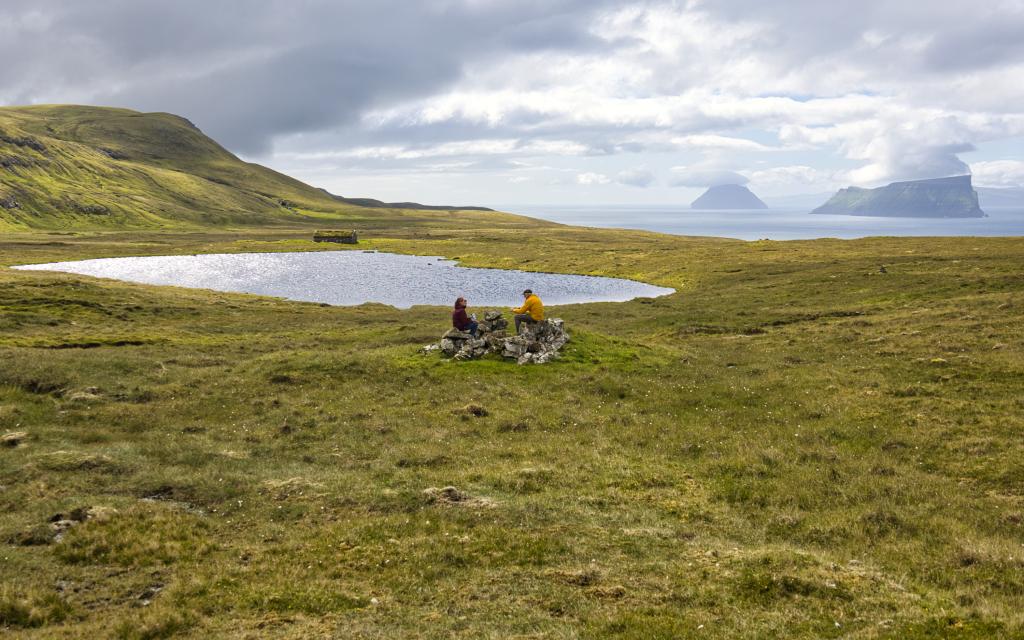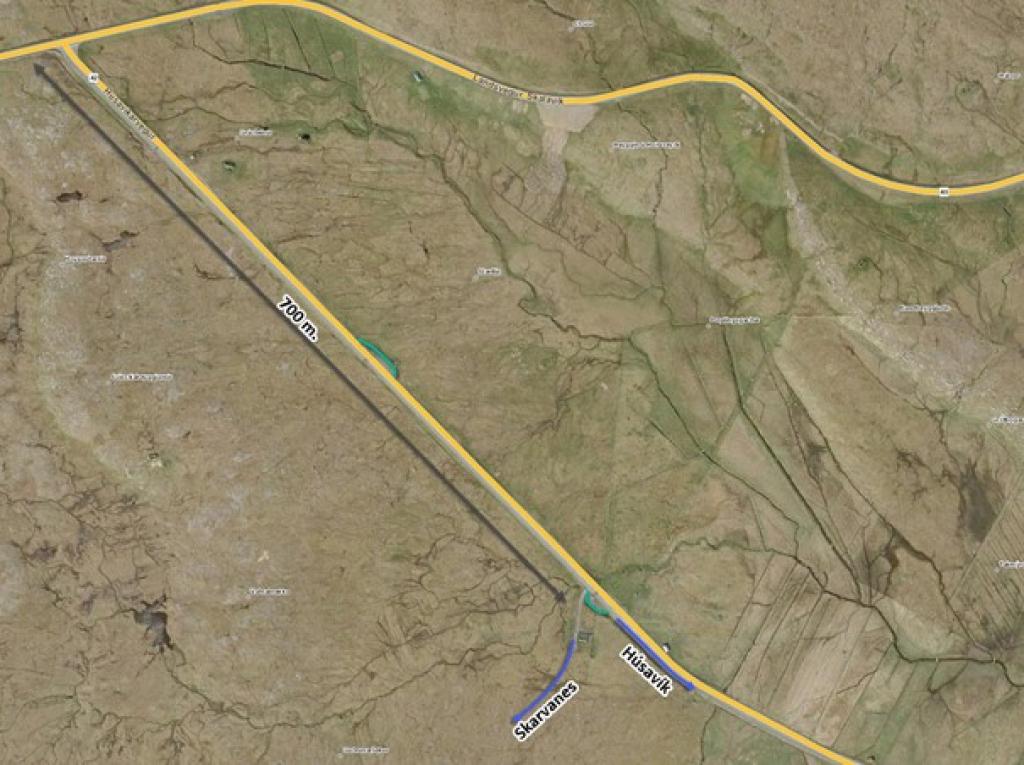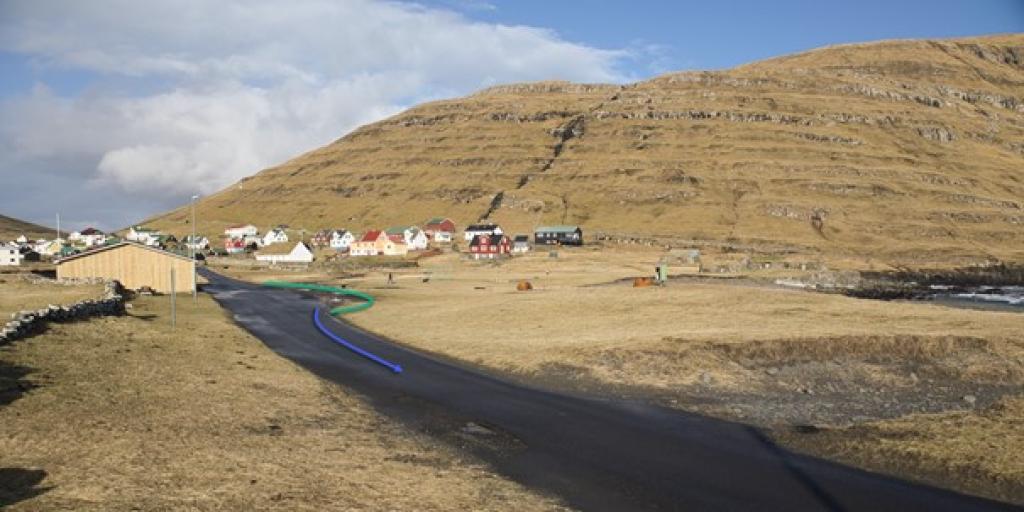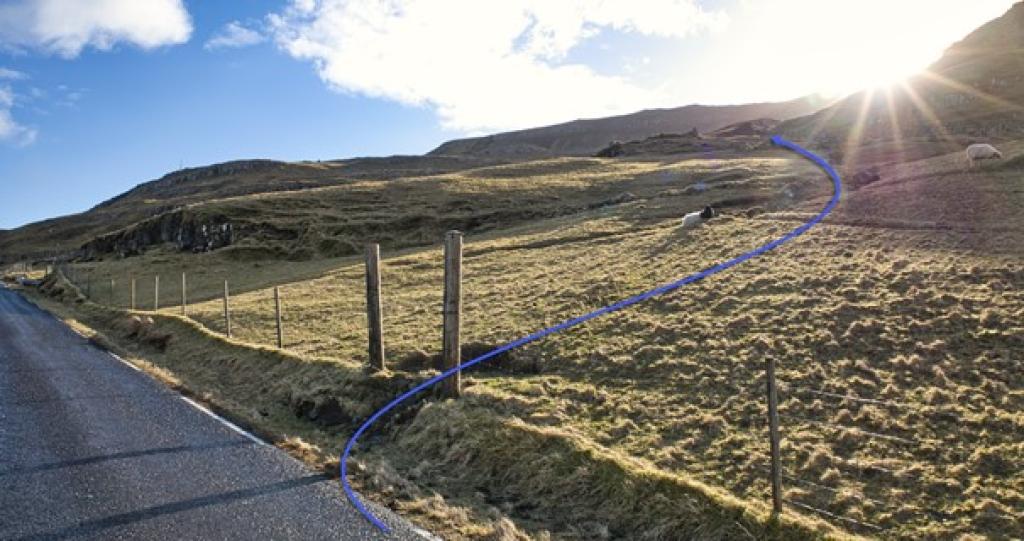Guðrunarløkur - Húsavík - Dalur - Skarvanes - Guðrunarløkur
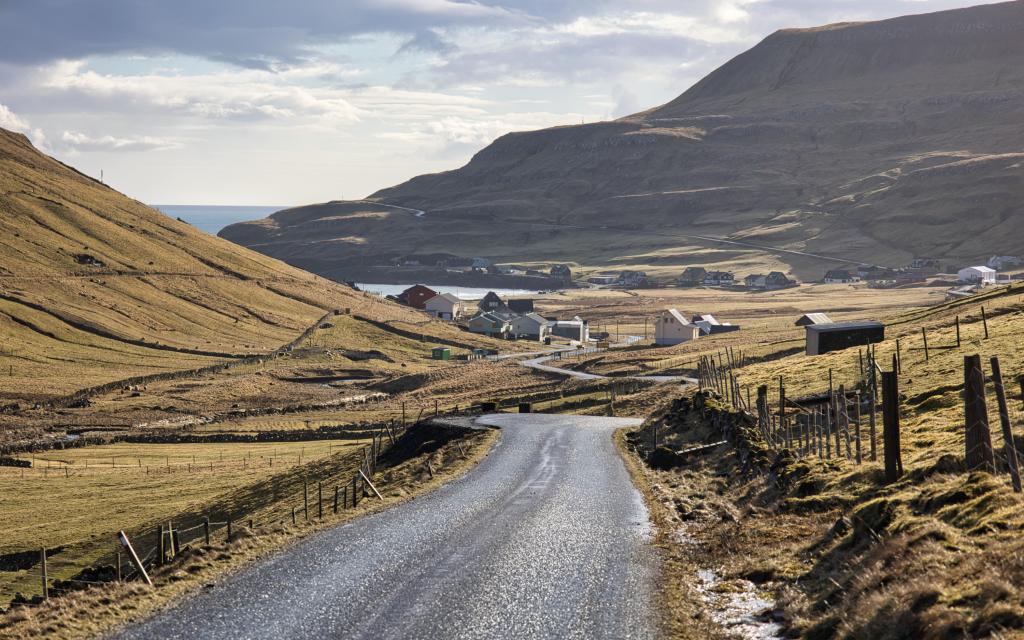
A roundtrip through the southeast part of Sandoy. Hike through historic Húsavík and Dalur and from here to the scenic views of Skarvanes.
The hike starts by Guðrunarløkur, a brooklet located nearby the parking some 700 meters towards the road to Húsavík. Walk south along the main road to Húsavík.
According to legend the exceptionally rich Guðrun Sjúrðardóttir lived and owned land in Húsavík in the Middle Ages. You'll notice stonewalls and stone houses, some dating back to the times of Guðrun. It is estimated that 10 kilometres of stone wall is in Húsavík.
Continue towards the shore to the area known as Tumbakki. Here, you'll see several turf
sheds. No one knows the age or story surrounding the buildings, but it is likely that the houses have been used for food storage.
Continue along the main road and turn left towards Dalur. After 200 meters, walk through two large posts, indicating the start of the village path. Continue through the old stone ruins and out through the sheepfold.
Cairns lead the way, and despite the hill being quite steep, the path is wide and easy to walk. The path is well trodden, because it was used by villagers from Dalur every Sunday, before the completion of the Dalur Church in 1957. The road to Dalur opened in 1963. However, it road is narrow, and landslides are common, so work is being made to replace the old road with a tunnel between Húsavík and Dalur.
Follow the small poles until you'll see the deep valley, which the village is named after. Dalur is famous for its strong traditions in Faroese dance and for having produced many excellent ballad chanters.
Walk down towards the village, continue across the river, and turn right to the road leading uphill. This road is from the 1930s and was built to connect the village to nearby peat fields. Today no one cuts peat anymore and the road is mostly used by local sheep farmers.
Follow the road for 1,3 kilometres, and don't forget to enjoy the great view. You'll see the sign pointing towards the village path to Skarvanes. Follow the poles and cairns up towards the hill until it flattens. During clear days several islands will be visible.
The path starts leading downwards and becomes rather steep. Suddenly the tiny village of Skarvanes will be visible. Díðrikur á Skarvanesi (1802-1865), also known as Díðrikur of Kárastova, lived here. He is known as the first painter in the Faroes. Some of his unique bird illustrations have survived and can be viewed at the National Gallery of the Faroe Islands. Before arriving at the infield gate, a sign will point towards Guðrunarløkur. Turn to the righ and continue up the short hill. Cross the river and be careful if the path is slippery.
Follow the cairns and poles along the small lake, Dúniavatn. The last 2,5 km will take you through wet landscape. Try to stay on the eastern side where the path is much dryer, and a fence ladder will take you across the fence.
Along the path are two rocks called Klovnusteinar. They look like a single rock that has been split into two. People used to believe that if you walked through the rocks, you would die before the year is over. This is most likely a myth, but try to steer around the rocks… Just in case.
When you arrive at Guðrunarløkur, continue towards the road some 70 meters north of the sheepfold, to where the hike started.
Guðrunarløkur - Húsavík - Dalur - Skarvanes - Guðrunarløkur
Húsavík - Dalur - Skarvanes - Guðrunarløkur - Húsavík
Busroute 601 connects Húsavík. See schedule here: https://www.ssl.fo/en/timetable/bus/601-dalur-sandur-skopun/
It is possible to park by the local village hall, Sólarís. Between the sand and the road is a parkway. Follow the blue arrows (see map).
Guðrunarløkur - Húsavík - Dalur - Skarvanes - Guðrunarløkur
Facts
Duration
distance
Peak
Elevation
